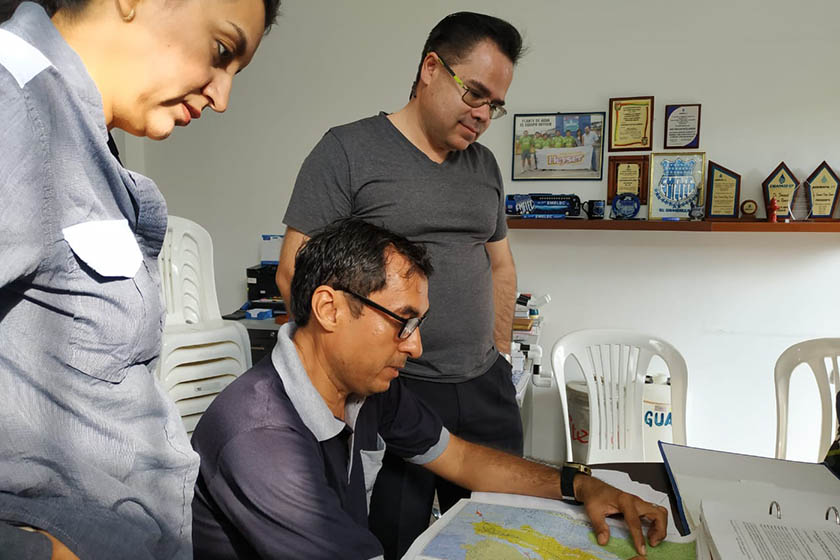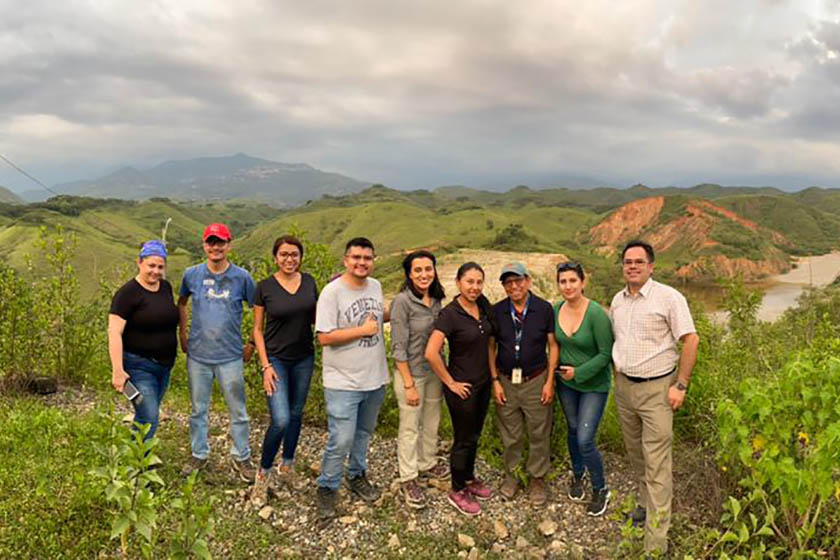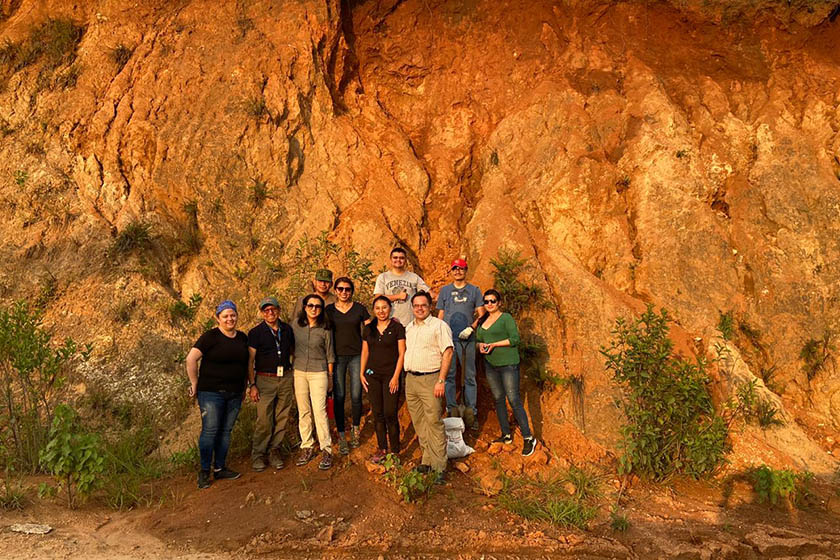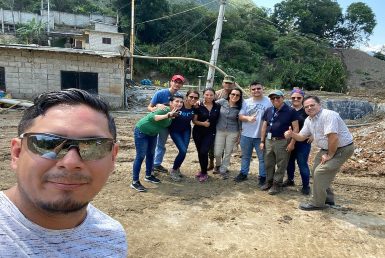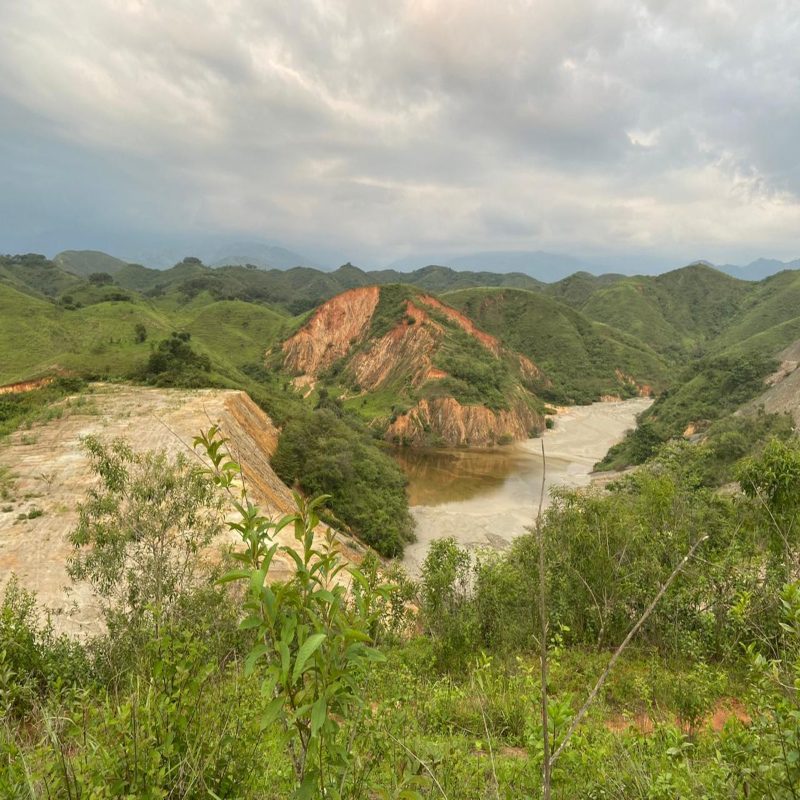
CEDIA PROJECT: INTEGRAL TREATMENT SYSTEM FOR ACID ROCK DRAINAGE FROM METAL MINING ACTIVITIES IN ECUADOR
START – END DATE: January 2020 – October 2021
STATUS: Completed project
PRINCIPAL INVESTIGATOR: Valeria Ochoa (USFQ Researcher and Professor)
LOCATION: El Oro, Santa Rosa, El Guayabo site
PROJECT DURATION: 12 months
FUNDING: CEDIA
Acid rock drainages (ARDs) are worldwide considered one of main environmental problems caused by metal mining, due to their acidity, high concentration of heavy metals and sulfate. These tributaries can pollute water resources and affect aquatic life. Furthermore, the heavy metals these tributaries have can be integrated into the traffic chains and affect the environment and public health.
The treatment of DARs can be carried out through passive or active processes. Active processes need chemical reagents and / or energy, while the passive ones use natural processes, such as gravity and microbe metabolism. Passive systems are preferred for their cost and low maintenance, though they do not tolerate high concentrations of metals nor strong feed flows. For this reason, the combination of both processes is the most appropriate approach for the successful treatment of ARDs. The objective of this research is to design and implement an integral system for the treatment of ARDs from metallic mining activities in Ecuador, combining physical-chemical processes and biological treatments on a pilot scale. Two physico-chemical treatment systems will be developed and independently evaluated as per-treatment processes. With the first one (I), there will be possibility to observe the adsorption of trivalent iron and metals in a plug flow system packed with a Tecnosol (soil from the mining area in combination with nanoparticles). The second one (II) will consist of a sequence processes of neutralization, oxidation, coagulation-flocculation, sedimentation and filtration. The physico-chemical treatment with the highest metal removal efficiency will be used as a pre-treatment to the biological treatment consisting of a bioreactor packed with sulfate-reducing bacteria (BSR). The BSRs will mediate sulfide production in the presence of an organic carbon source. This sulfide will react with heavy metals causing their precipitation as metal sulfides. The sulfate-reducing bioreactor would be inoculated with a local sludge whose performance was previously determined. In the sludge samples the concentration of BSR will be evaluated and microscopic and metagenomic analyzes will be carried out. These data will be used to estimate the diversity and abundance of microorganisms present in the bioreactor. The integral physical-chemical-biological system on a pilot scale will be fed with DARs obtained from mining areas in the provinces of Loja, Zamora-Chinchipe, Azuay and El Oro, which will be previously sampled and characterized based on physical-chemical parameters. This study will provide information for the design of an integral system composed of a physical-chemical ore-treatment connected in series to a bioreactor packed with BSR for the remediation of DARs from metallic mining activities in Ecuador on a pilot scale.
Additionally, a study will be done on the microbial composition responsible for the bioremediation of the DARs. The results of the research project could be used in a medium-term to develop mining effluent treatment technology adapted to local conditions, and with lower operation and maintenance costs that can be used in the country.
Researchers
- Valeria Ochoa-Herrera, PhD. Principal Investigator;
- Gabriel Trueba, PhD. Co-Investigator;
- Aracely Zambrano R. PhD(C). Post graduate student;
- Natalia Carpintero, Bsc. Technical support;
- Isabela Saud, Eng. Technical assistant;
- Wendy Vernaza, Eng. Administrative Support

